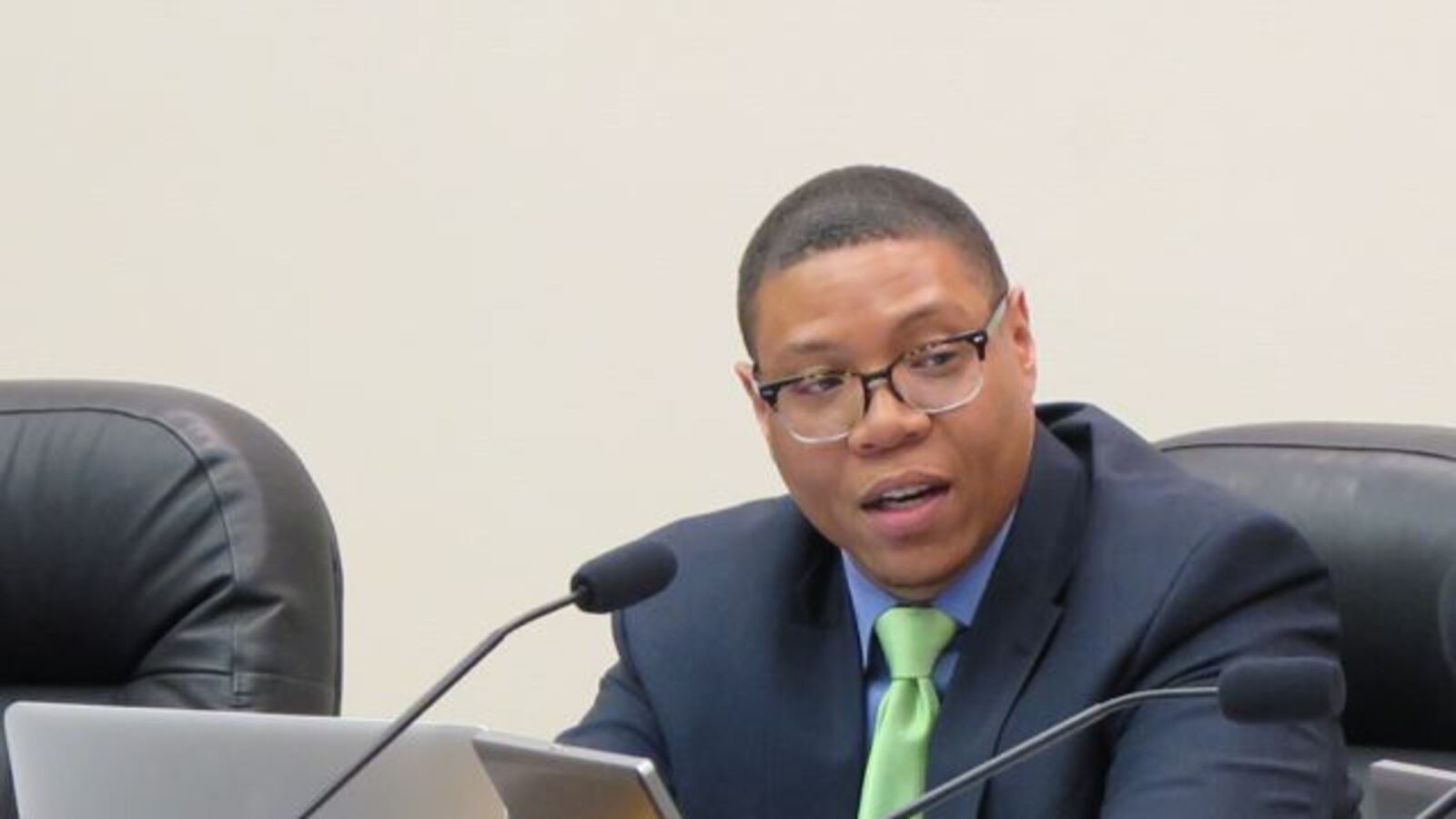Indianapolis Public Schools Superintendent Lewis Ferebee said today that he’s interested in giving some of the district’s long-struggling schools a fresh start.
After the Indiana State Board of Education brought up the possibility, Ferebee said he plans to ask to “reset” the A-F grades at a handful of schools in the district’s “transformation zone,” which includes a subset of schools that have received failing marks for years and are getting extra attention from the district and the state without being taken over.
Read: IPS aims to fix troubled high schools by flooding ‘transformation zones’ with support
If the state board allows the district to request a reset — and if the Indiana Department of Education signs off — the schools would essentially be considered new, erasing years of low letter grades and possibly helping schools avoid more state intervention. State Superintendent Jennifer McCormick said she’d support it.
“Are we going to get hung up on the punitive part, or are we going to get hung up on what they feel is best for the students in IPS?” McCormick said.
The grade reset option came up unexpectedly Wednesday during a conversation between the state board and IPS about altering the district’s transformation zone plan, which board members said could demonstrate a big enough change to get a reset approved. And it could have significant implications for the schools and their reputations, as many of them are in the middle of dramatic overhauls.
“We really were focused on ensuring that our transformation zone plan was strong and ultimately would be supported,” Ferebee said. “Now that we have that support, we’ll go down the path of reset.”
Several schools in the zone have seen at least three years of F grades, and four trigger state intervention. It’s unclear what, exactly, that would mean for schools in the transformation zone, which already involves the state. But it’s possible that a reset could help the schools avoid more outside intervention.
According to Maggie Paino, the director of accountability for the education department, schools would have to show that that was not their main motivation. Any school can apply for a grade reset, she said, but to get the request granted, the state must determine that the schools meet three key criteria:
- They need to show a significant change in student population.
- They need to show they’ve had a major shift in “education philosophy,” which could include staff overhauls or big changes to curriculum.
- The state has to be assured that the school is not requesting the change just to skirt accountability rules.
If the reset did allow schools to avoid further involvement from the state, that would help Ferebee achieve one of his key goals: retaining more control over school improvement.
“When the district is empowered to own the work, I think the chances of getting better results are much higher,” he said.
But plans for a “reset” raise questions about whether the district remains confident that the transformation zone is enough to help the schools boost their performance, and thus, their letter grades. And, it’s potentially redundant — If the transformation zone schools improve as intended and grades go up, they no longer risk bringing on state sanctions, making past grades less important.
It also raises questions about why the state would be open to shifting its accountability strategy for so many schools when the transformation zone itself is still in an early stage.
Ron Sandlin, the board’s director of policy and legislation, said schools in transformation zones should show improvement after two years and sustain that for at least three more. Some of the schools in IPS’s zone will have been part of the zone for two years this year, and most remain in the lowest categories.
“Two years in the zone will be a real proof-point for the schools that have been there,” Sandlin said.

